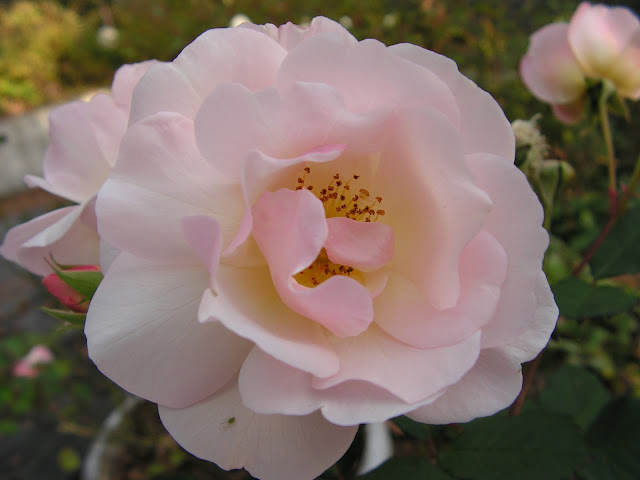Markings
A few years ago on Ash Wednesday, as I was imposing ashes at the altar rail, a young mother and her baby came forward. All of the folks on whose foreheads I had smudged ashes in the shape of a cross had been adults, many of them older adults. And then here comes this fresh faced young woman with a precious little girl. And I thought to myself, I don't want to put ashes on this child. I don't want to say to her, "Remember that you are dust and to dust you shall return." I don't want to call her, or her mother either for that matter, to repentance, to a remembrance of her mortality. I don't want to remind these two who are bursting with life, with twinkling eyes and soft skin, that it's time for them to be penitent and practice self-denial.
But of course, I did. And afterwards I recalled the reading from Matthew (6:16) where Jesus says that whenever one fasts one should not look sad/somber/disfigure the face so that people can tell one is fasting but rather should wash one's face and anoint it will oil. Which is the reading for Ash Wednesday anyway. And there is the prayer that the celebrant says before the imposition of ashes:
Almighty God, you have created us out of the dust of the earth: Grant that these ashes may be to us a sign of our mortality and penitence, that we may remember that it is only by your gracious gift that we are given everlasting life; through Jesus Christ our Savior. Amen. (BCP 265)
That first half of the petition is what I had been thinking of - the ashes as a sign of our mortality and penitence - but the child made me aware of the joy that lies in the second half of the petition. It is only by God's gracious gift that we are given everlasting life. The sign of the cross traced upon our foreheads in ashes is not only a sign and mortality and a call to penitence, but it is also a sign that God has give us the most wonderful gift of all - life. Life now and life everlasting. As Origen said (loosely), we come from God and we return to God. That we should repent of our living a life that turns away from God is obvious. But I realized also that on what I put on the face of that child was the mark of promise and life in God.
I mistook the ritual of the ashes as marking someone for death. And it is the reminder that we are mortal, but it is also making plain that death is not the end of the journey, as will become obvious at Easter. The call to repentance is not so that we will make ourselves miserable but so that we will strip away the things that weigh us down and keep us from knowing God and loving one another and loving ourselves. The call to repentance is a call to free ourselves from bondage to those things that keep us from having life abundant here and now. The call to repentance is to ask us to look for those things and to cast them off gladly.
The little girl, at a year old, did not need to repent or understand her mortality. But like the rest of us, she did come to be marked as one who belongs to God and who will return to God in the fullness of time. She came to be marked with the promise, just as she was marked with oil at her baptism. She served as a reminder to me and to all who saw her that all of this stuff we do during Lent is to help us live into true Easter joy.

Comments